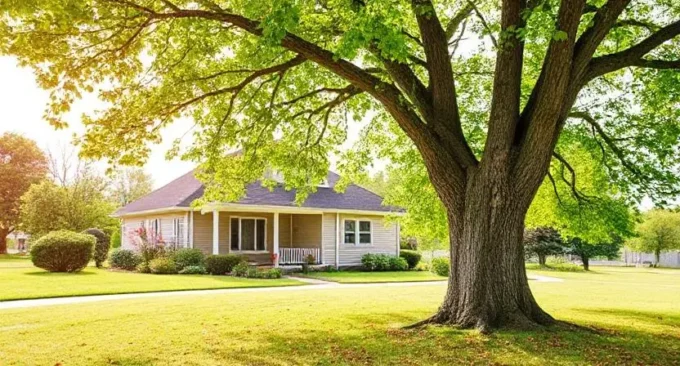Explore the impact, funding, and implementation elements of the doge hhs migrant housing contract to gain important insights.
Introduction
One of the most closely watched federal contracts in recent years is the doge hhs migrant housing contract. The Department of Health and Human Services (HHS) has given DODGE Construction Company a sizable housing contract, igniting public controversy and legal inquiry amid growing worries over immigration policy, federal spending, and human rights. The goal of the hundreds of millions of dollar deal is to temporarily house families and children of unaccompanied migrants at the southern border of the United States.
This article provides a thorough, data-driven analysis of this federal agreement, looking at its legal ramifications, logistics, and stakeholder reactions from a range of political backgrounds.
Background: The Increase in Migrant Arrivals and Federal Responsibilities
The number of migrants entering the United States has skyrocketed in recent years, especially at the southern border. Many of these people are unaccompanied minors who need temporary accommodation and specialized care. After these youngsters are placed in federal custody, the HHS is in charge of their welfare. To quickly expand its housing infrastructure in response to the huge surge, HHS has resorted to private contractors like DODGE.
The extent and magnitude of the agreement at Doge HHS Migrant Housing Contract
According to reports, the doge hhs migrant housing contract covers several locations in Arizona, California, and Texas. The arrangement covers the building, administration, and running of housing units intended to house thousands of children. These establishments are designed to provide medical care, mental health counseling, food, housing, and educational opportunities.
- Contract Value: Estimates suggest the contract exceeds $500 million, funded through emergency federal appropriations.
- Duration: The agreement is set for an initial term of five years, with options for renewal.
- Capacity: The contract outlines provisions to house up to 30,000 migrant children at any given time.
Disputes and Legal Difficulties at Doge HHS Migrant Housing Contract
Insufficient Openness in the Bidding Procedure
The absence of competitive bidding is one of the most controversial features of the doge hhs migrant housing contract. Critics contend that conventional procurement procedures were circumvented in awarding the contract under hurried conditions. This has sparked worries about possible legal infractions, favoritism, and poor management.
The internal discussions and evaluation reports that resulted in DODGE’s selection have been the subject of Freedom of Information Act (FOIA) requests from a number of watchdog groups.
Conditions of the Facilities and Human Rights Issues
An alarming image of overcrowded and understaffed facilities has been presented by investigative journalists and whistleblowers. Among the accusations are:
- Lack of access to wholesome food and clean water
- Medical therapy delays
- Children’s high rates of anxiety and depression
- Lack of educational activities and unsafe sleeping conditions
The Government Accountability Office (GAO) and the Office of Inspector General (OIG) have both launched investigations into these allegations.
The Defense and Reaction of Doge HHS Migrant Housing Contract
DODGE Construction Company has issued a number of statements defending its position and operational standards in response to growing criticism. The business maintains that it employs qualified professionals, complies with all federal regulations, and is routinely inspected by government representatives and outside auditors.
In addition, DODGE emphasizes how it uses modular construction technology to swiftly implement housing solutions, asserting that this enables quicker and more affordable scaling in comparison to traditional structures.
Political and Economic Consequences at Doge HHS Migrant Housing Contract
There are wider political and economic ramifications to DODGE being awarded the HHS migrant housing contract:
Allocation to the Federal Budget
Both conservative and progressive lawmakers have expressed concern about the enormous amount of money given to this one contractor. It diverts funds from more sustainable immigration solutions, according to some, while others contend it is a necessary response to a humanitarian catastrophe.
Partnerships Between Public and Private Sectors in Federal Reaction
The doge hhs migrant housing contract highlights the increasing dependence on private organizations to handle tasks that were once under government supervision. Fundamental concerns regarding transparency, accountability, and the moral obligations of private contractors working with disadvantaged groups are brought up by this movement.
Effects on Neighborhoods
Local communities have also been impacted by the construction of new housing facilities, particularly in rural areas. Some towns voice worries about congestion, security, and the burden on local resources, while others applaud the economic boost from building and the creation of jobs.
Regulatory Monitoring and Adherence at Doge HHS Migrant Housing Contract
Several regulatory agencies have stepped up their supervision efforts in light of the DODGE HHS agreement’s size and sensitivity. These consist of:
- Direct oversight of care standards is provided by the HHS Office of Refugee Resettlement (ORR).
- Department of Homeland Security (DHS) of the United States: coordinating the admission and transfer of migrants
- State Health Departments: Enforcing public health and building codes locally
Monthly reports outlining facility conditions, incident logs, and budgetary expenses must be submitted by DODGE. Contract suspension or termination may follow noncompliance.
Contracts for Housing for Migrants in the Future
The doge hhs migrant housing contract future is still up in the air as legal disputes and public criticism grow. Possible situations consist of:
- Re-evaluation of Contract Terms: In response to pressure, HHS may revise certain provisions of the contract to guarantee increased openness and performance standards.
- Enhanced Congressional Oversight: New laws regulating federal housing contracts for migrant populations may result from bipartisan initiatives.
- Growth of Non-Profit Alternatives: Advocacy groups are urging more non-profit and faith-based organizations to be involved in the care of unaccompanied youngsters in response to ethical issues.
FAQs
Q1: Why was the Pecos facility run by Family Endeavors there?
A1: During spikes in arrivals, the facility was designed to house migrant families temporarily.
Q2: What led to the termination of the agreement with Family Endeavors?
A2: Because the facility was still generating high monthly expenses despite being mostly vacant, the contract was terminated.
Q3: What was the cost of the underutilized facility?
A3: Despite the facility’s vacant status, reports suggest that more than $215 million was spent on it.
Q4: What function does DOGE serve in government affairs?
A4: The Department of Government Efficiency (DOGE) wants to make federal expenditure more efficient and less wasteful.
Q5: What wider ramifications does this incident have?
A5: The circumstance calls for a reassessment of methods for managing migrant housing and emphasizes the necessity of better control of government contracts.
Conclusion
An important focal point in the national dialogue on immigration, public accountability, and government spending is the doge hhs migrant housing contract. The scrutiny of such contracts will only increase as the United States struggles with humanitarian duty and border management. This instance highlights the essential need for openness, monitoring, and reform in the way the country treats its most vulnerable newcomers, regardless of whether it is seen as a necessary emergency response or a problematic example of federal outsourcing.














Leave a comment